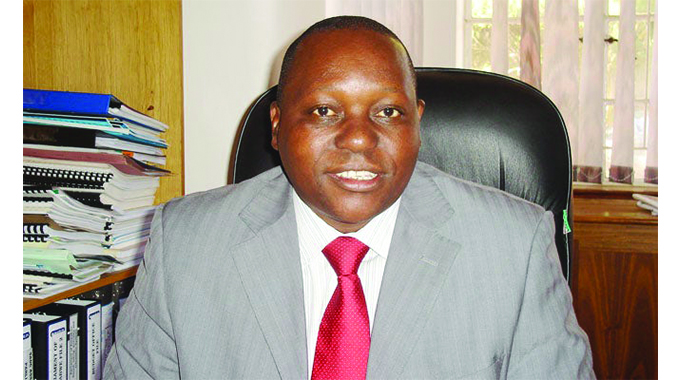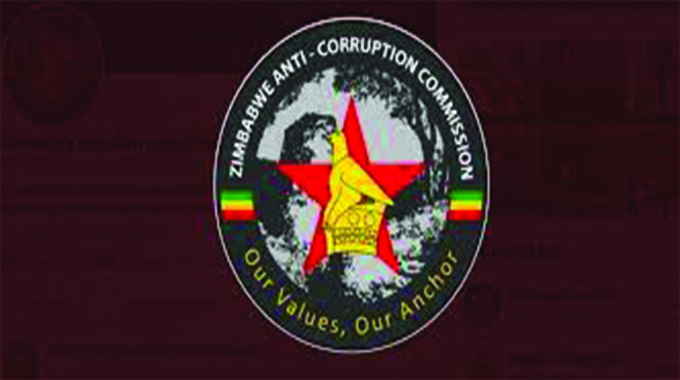Witness intimidation in high profile corruption cases

Patrick Chitumba, Midlands Bureau Chief
THERE is a low rate of conviction in most high-profile corruption cases in the country amid indications that whistleblowers are intimidated until they refuse to testify against suspects in courts.
While ministers and directors in Government have been arrested by the police working with the Zimbabwe Anti-Corruption Commission (Zacc) over allegations of corruption, the rate of conviction has been far from impressive, observers say.

Zimbabwe Anti-Corruption Commission (Zacc)
Some of the cases are still pending in courts.
The development has seen members of the public accusing Zacc of “catch and release” syndrome.
This comes as the economy is losing millions of dollars annually through corruption, which is resulting in mineral leakages, tender irregularities, among other illicit vices.
Addressing a recent round table integrity committee dialogue and training workshop hosted by Zacc and the Zimbabwe National Road Administration (Zinara) in Gweru, Zacc Commissioner, Mr John Makamure, said the anti-corruption body was determined to fight graft.

United Nations Convention Against Corruption (UNCAC)
He said the integrity committees are themselves effective, co-ordinated anti-corruption initiatives that have been developed and are being implemented in compliance with United Nations Convention Against Corruption (UNCAC).
“As an institution constitutionally mandated to take a leading role in the fight against corruption in both public and private sectors, and presently seized with determined pursuit of National Development Strategy (NDS1) objectives and Vision 2030, Zacc spurred the country’s introduction of the National Anti-Corruption Strategy (NACs) that was launched by President Mnangagwa on 11 July 2020,” said Mr Makamure.
“It is the imperative for an inclusive combative approach in dealing with corruption within the framework of NACS that led Zacc’s conception of integrity committees in institutions.”
Comm Makamure said an integrity committee has been devised to be part of the organisational structure to spearhead the prevention of corruption, related vices and maladministration.
The integrity committee concept, he said, adopts a proactive rather than a reactive approach in dealing with corruption occurring within the sphere of control of an institution.
“It is a tool for mainstreaming corruption prevention in the routine business of organisations,” said Comm Makamure.
He said Zacc was pushing for the whistleblower protection law because a lot of victimisation for whistleblowers had been rampant.
“The playing of a whistleblower role by the integrity committees, as one of its important roles, faces the spectre of victimisation, which has been affecting the flow of information on corruption to Zacc.
“Similar fears have also resulted in witnesses in court cases sometimes turning hostile, to the prejudice of successful prosecution of mostly high-profile cases” said Comm Makamure.
He said such threats to combating corruption will soon be a thing of the past as Zacc’s proposals to the enactment of Whistleblower and Witnesses Protection Law have been adopted by Cabinet and drafting of the Bill is underway.
Comm Makamure said the law will have provision for stiff penalties for the victimisation of whistleblowers and witnesses in criminal offences.
“The whistleblowers have been intimidated and ended up not testifying or hostile to the courts.
That led to the low rate of conviction in mostly high-profile corruption cases,” he said.
“But once the law is enacted, there will be provision of stiffer penalties for victimising or intimidating whistleblowers,” said Comm Makamure.
He said it is pleasing to note that the round table dialogue and training workshop has been prompted and organised by Zinara to capacitate its integrity committee members on the roles and responsibilities of integrity committees in combating corruption.

Zimbabwe National Road Administration (Zinara)
“Indeed, this is a positive response by Zinara to our incessant call to organisations in both public private sectors to establish integrity committees for the prevention of corruption in their institutions,” he said.
“Thus, the training of integrity committee members on promotion of integrity is encouraged, inter-alia, through the use of the Constitution as one of the important basic reference documents.”
Comm Makamure said other expected roles and responsibilities of integrity committees in organisations include the fostering of anti-corruption policies and practices, training of staff on anti-corruption strategies.








Comments